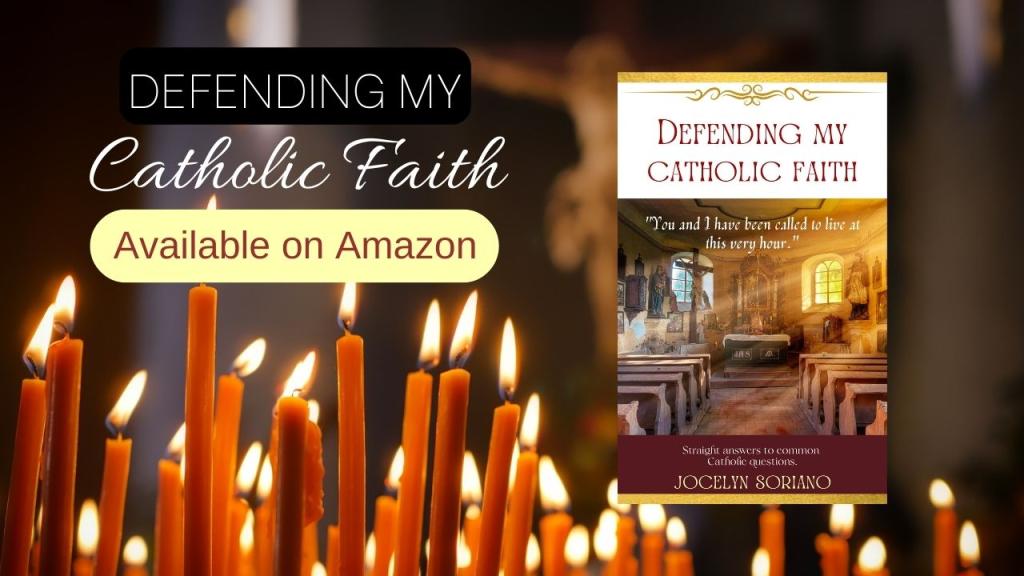
As we live more and more in a Non-Catholic and secular world, we may be faced with the difficult choice of marrying someone from a different faith. Some people have already experienced it. They know from experience the challenges of marrying someone from a different religion. Some marry a spouse who does not even believe in God.
What does the Catholic Church say about these types of marriages? And what should you do if you are already married to a Non-Catholic spouse?
The Need for Church Dispensation
It is important to note that this type of marriage requires a dispensation from the Church.
Here is what the Catechism of the Catholic Church (1635) says:
“According to the law in force in the Latin Church, a mixed marriage needs for liceity the express permission of ecclesiastical authority. In case of disparity of cult an express dispensation from this impediment is required for the validity of the marriage. This permission or dispensation presupposes that both parties know and do not exclude the essential ends and properties of marriage and the obligations assumed by the Catholic party concerning the baptism and education of the children in the Catholic Church.”
The Church would like to have an assurance that both people know what they are entering into. This also ensures that the Catholic spouse is aware of one’s responsibility in baptizing and raising their children, educating them in the Catholic faith.
The Challenges of Being Married To a Non-Catholic
Being married to someone with a different faith is would not be without its challenges. The adjustment would be more difficult for those married to Non-Christians and those who profess unbelief in God’s existence.
Here are just some of the challenges the couple could face as well as the possible remedies for each:
1. Community support
Belonging to different religions would mean the lack of support from the Church community that is usually available for spouses from the same faith. If there are groups for couples within the Church, it could normally be expected that the non-Catholic spouse would not be able to join. This is the same for other events and festivities celebrated within the Church community.
One remedy that couples could resort to is to avail themselves of those organizations and activities that could welcome someone from a different faith. It may not necessarily be those that require devotions to the Blessed Virgin Mary or the saints. But there may be charitable groups where the couple could join and work together as they enjoy the company of other people around them.
2. The education of children
Another area that is crucial to the married couple is the education of their children. Will their children be able to attend a Catholic school? If the non-Catholic spouse is a Protestant, will he or she be able to take the children to their Church service on Sunday?
The couples must be very honest yet respectful and supportive of each other regarding the spiritual education of their children. The must think of ways where they can educate their children on common beliefs. If there is none, they must be able to devise a plan so that their children do not grow up confused of each other’s beliefs.
3. Differences in the practice of beliefs
There may be very specific differences in the practice of beliefs between a Catholic and a non-Catholic. One example is the Catholic’s use of images and icons when they pray. If they are married to a Protestant, this may be seen as a practice that should be avoided.
While these differences can be a source of misunderstanding between spouses, such can also be opportunities to talk about one’s faith. With an open-minded dialogue between parties, one can even explain the basis for one’s Catholic beliefs.
4. Family pressure
Even before getting married, couples from different religious backgrounds may face pressure from their families. Each family may express their resistance to their union, putting pressure to couples who professed to marry each other.
Again, good communication and respect is the key to explain one’s decision to all the parties involved.
5. Emotional and spiritual intimacy
One of the most difficult areas couples could face is in the area of spiritual intimacy. Although they profess to love each other, a time may come when the most important anchor that the other one could hold on to is their faith. When all else fails, a Catholic surrenders and offers everything to God, a Father who will never forsake His children.
When this happens, the other spouse may simply offer one’s presence and perhaps seek also in one’s heart a Higher Power who could assist us in our darkest times.
Conclusion
One must not disregard the many challenges to be faced when marrying a non-Catholic. However, the Church itself says that this is not an unconquerable difficulty:
“Difference of confession between the spouses does not constitute an insurmountable obstacle for marriage, when they succeed in placing in common what they have received from their respective communities, and learn from each other the way in which each lives in fidelity to Christ.” – CCC 1634
Here, mutual respect, open communication and dedication to seeking the truth is very important. Above all, both spouses must hold firmly to their love for each other. If this love is true, it should pave the way towards understanding, spiritual growth, and a lasting and happy marriage.
“For the unbelieving husband is made holy through his wife, and the unbelieving wife is made holy through her husband. Otherwise, your children would be unclean, but as it is, they are holy. But if the unbelieving partner separates, let it be so; in such a case the brother or sister is not bound. It is to peace that God has called you. Wife, for all you know, you might save your husband. Husband, for all you know, you might save your wife.” – 1 Corinthians 7:14-16 (NRSVCE)
Jocelyn Soriano is the author of the book Defending My Catholic Faith.
“Always be ready to give an explanation to anyone who asks you for a reason for your hope.” – 1 Peter 3:15 (NABRE)
Get my books on other Digital Stores
You may also want to read “How Do You Live as a Catholic in a Godless World?”















